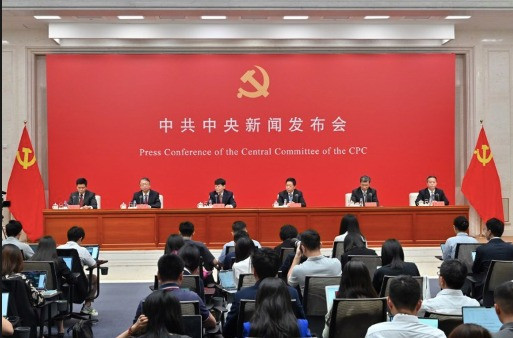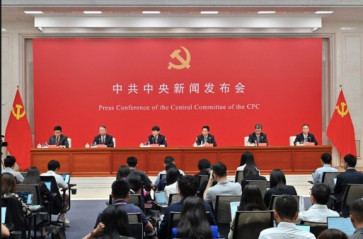Popular Reads
Top Results
Can't find what you're looking for?
View all search resultsPopular Reads
Top Results
Can't find what you're looking for?
View all search resultsNavigating the tide of Chinese modernization
In light of China's ambitious modernization strategy toward becoming a leading global power, Southeast Asian countries must have a broad development framework with a view to engaging with China on an equal footing alongside other major economies to ensure mutually beneficial partnerships and avoid putting all their eggs in one basket.
Change text size
Gift Premium Articles
to Anyone
T
he Third Plenary Session of the 20th Central Committee of the Communist Party of China (CPC), held in Beijing from July 15 to 18, marked a significant moment in China’s political and economic landscape.
The communiqué issued at the conclusion of this session reaffirms the CPC's commitment to the ideological framework of President Xi Jinping and underscores a comprehensive strategy for China's modernization through deepened reforms. This strategy includes ambitious goals for economic development, governance and national security, reflecting China's commitment to becoming a leading global power.
Central to the session's outcomes is the reaffirmation of “Xi Jinping Thoughts on Socialism with Chinese Characteristics for a New Era”. This ideological cornerstone is presented as the guiding light for China's path forward, emphasizing Marxism-Leninism, Mao Zedong Thought, Deng Xiaoping Theory, the Theory of Three Represents and the Scientific Outlook on Development.
The synthesis of these doctrines into a cohesive framework illustrates an attempt to root modern policies in historical continuity, providing stability amid significant policy shifts. This ideological commitment aims to consolidate power within the CPC and reinforce Xi’s position at the helm, ensuring alignment with the party’s long-term vision.
The communiqué outlines a robust agenda for deepening reforms further to advance Chinese modernization. Key areas include building a high-standard socialist market economy, promoting high-quality economic development, advancing whole-process people's democracy and modernizing China’s governance and national security systems. These goals are ambitious and aim to position China as a leading global power by mid-century.
The emphasis on "promoting high-quality development" and "deepening supply-side structural reform" acknowledges the need for economic recalibration. Shifting toward a more consumption-driven, innovation-based economy is necessary but challenging, requiring profound changes in industrial policy, financial regulation and labor markets.
The terms "whole-process people's democracy" and "socialist rule of law" reflect China's efforts to enhance governance efficiency and legitimacy, contributing to the country's overall stability and progress.



















